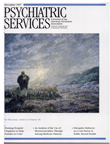Infertility and Involuntary Childlessness: Helping Couples Cope
Infertility affects one in six couples—more than ten million people in the United States alone. Yet this enormous medical, psychological, and social problem continues to be neglected. Beth Cooper-Hilbert's Infertility and Involuntary Childlessness refocuses attention on this pervasive problem and is intended to educate psychotherapists. The book is aimed less at those who specialize in work with infertile couples than at therapists with general outpatient practices who could benefit themselves and their patients by acquiring a clearer understanding of the multiple traumas of infertility and the specific counseling issues that attend them.
Dr. Cooper-Hilbert is a psychologist in private practice and director of the Fertility Counseling Center of Connecticut. In addition, she teaches psychology and marriage and family therapy courses at two Connecticut universities. She is certainly well qualified to write this book, and, based on her writing, I wouldn't hesitate to refer to her any couple struggling with past or current infertility issues. Unfortunately, her attempts to provide a comprehensive guide for therapists are somewhat uneven.
The author presents infertility as a crisis within the development of the marital life cycle, which is a useful and well-researched paradigm, but I was left wondering about the place of individual dynamics and character structure. Her discussion of the effects of religious, cultural, and class differences on the couple system is particularly refreshing and useful, as so little has been written about this subject in the past.
The chapter on "The Impact of Gender in Dealing With Infertility Issues" is a curious mix of research citations and opinions of questionable substantiation. The research quoted by Cooper-Hilbert (and my own clinical experience) strongly suggests that in general women have more intense reactions than men to infertility. Yet the author attempts to ignore many of the findings with statements like "Even though men often react differently, their feelings are equally intense." This perspective seems a misguided attempt to avoid being sexist, and it leaves the reader with a confusing message.
Perhaps the core of Infertility and Involuntary Childlessness is the chapter entitled "When Infertility Is Not the Presenting Complaint." This section most clearly sets the book apart from other well-established works on the emotional impact of infertility. The author makes a compelling case for carefully investigating hidden infertility issues in all couples therapies. She uses genograms to help couples literally see how their infertility has shaped their family. Because of the power Cooper-Hilbert attributes to these diagrams, I wish she had taught us more about them.
A chapter addressing those who may be fertile but involuntarily childless is another fresh aspect of this book. The author includes singles, gay and lesbian couples, out-of-phase couples, and stepparents in blended families. She highlights the major issues for these populations and their implications for therapy. The book concludes with a beneficial discussion about the implications of biotechnology for the family and the culture, an essential component in anyone's education about the impact and treatment of infertility.
Ms. Lister is a founding partner of Reproductive and Childbearing Counseling Services in Portsmouth, New Hampshire.



